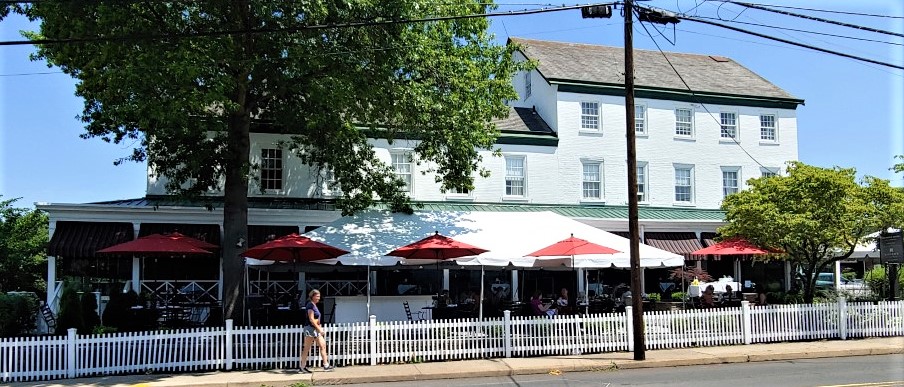How Emperor Napoleon’s page boy ended up owning the Brick Hotel.
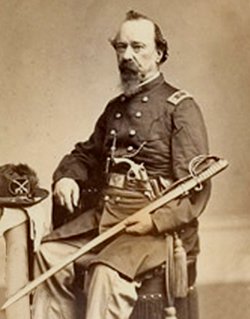
Joe, the hardware man, seemed a perfect fit in Newtown Borough. He and wife Susan arrived with a bit of cash to open a hardware store in 1821. At age 29, Joe was an energetic man of many skills including dentistry, veterinary medicine and ability as a tin smith. He also was fluent in French and English. What’s more, he and brother Achille were boyhood pages to French emperor Napoleon Bonaparte and wife Josephine. They fought with him on European battlefields and fled with him into exile after the Battle of Waterloo. More on that later.
In Newtown, Joseph Archambault prospered in the hardware business and in 1829 bought the nearby Brick Hotel on Washington Street. Amos Strickland, a Newtown farmer, built the 2-story mansion in 1763. He later hosted George Washington, his officers and a few captured Hessian officers after the Battle of Trenton in December 1776. The home eventually became a tavern, then a small hotel. Joe set out to greatly expand it while catering to wealthy Philadelphians who sailed up the Delaware River to Bristol, then came by horse-drawn coaches to the Brick. Joe added a third story to the main building, built a two-story extension and added many flourishes to augment the Brick’s status as a first-class summer resort. All the while he was the gracious on-site host.
The hotel’s architecture distinguishes it today, a place where Mary Anne and I have enjoyed many a fine dining experience. It wasn’t until recently that we came to appreciate Joseph Archambault’s extraordinary back story.
He was born in Fontainebleau, France in 1792. When his mother died, he and his older brother moved in with their grandmother in a Catholic hospice. In the fall of 1807, Napoleon and Josephine in an open carriage stopped to chat with an elderly priest saluting them through a window. He told of difficult circumstances after the French Revolution. Napoleon offered condolences and financial help. He also agreed to take Joseph, 15, and Achille,19, into the royal family as pages to train horses in the imperial stables. The boys received educations, military training and became Napoleon’s personal grooms.
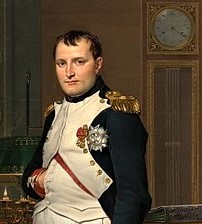
After his disastrous invasion of Russia in 1812, the emperor abdicated. He and the brothers went into self-imposed exile in 1814 on the island of Elba in the Mediterranean. The following year, he left the island with an army of 700 men to retake the throne. An outpouring of public support welcomed the emperor and forced unpopular King Louis XVIII to flee to Belgium. Britain and Prussia responded by forming a
nalliance to end Napoleon’s 100-day rule. At the Battle of Waterloo in 1815 British forces defeated Napoleon’s army. The brothers fled with the emperor to Rochefort to escape on a ship to the U.S. A British blockade however forced their surrender. Ordered to turn over his sword, Joe broke it in pieces and flung them into the sea.
Britain exiled pesky Napoleon to Saint Helena, a sparsely populated English island more than 1,000 miles off the coast of West Africa. Napoleon retained his freedom there as well as 12 associates including Joe and Achille who were his carriage drivers. Napoleon admired Achille’s daring horsemanship, making him lead driver.
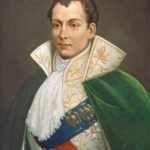
Betsy Balcombe, daughter of an island employee, recalled treacherous trips in a carriage with Achille in charge. “It was driven by the fearless Archambault, with unbroken Cape horses, three abreast, round that most dangerous of roads called the Devil’s Punchbowl. The party occupying the side nearest the declivity seemed almost hanging over the precipice, while the others were, apparently, crushed against the gigantic walls formed by the perpendicular rock. These were drives which seemed to inspire Bonaparte with mischievous pleasure. He added to my fright by repeatedly assuring me the horses were running away, and that we should be dashed to pieces.”
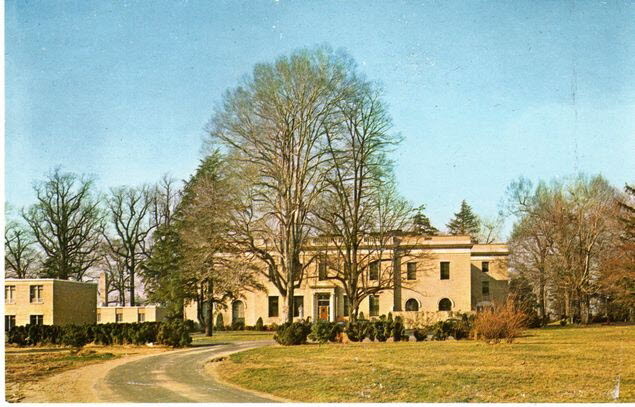
A year after Napoleon’s arrival, Britain ordered him to reduce his staff to cut expenses. His captors sent Joe to the Cape of Good Hope, then to England where he boarded a ship for New York. There he sought out Napoleon’s brother Joseph Bonaparte living in exile in grand style in a palace overlooking the Delaware River in Bordentown, N.J. With financial support from the former King of Spain, Joe and new wife Susan Sprague relocated to Newtown. The couple had five children: Victor, Achille, Lucien, Lafayette, Napoleon Bonaparte and Roselma Josephine.
At age 65, Joe joined the Second Pennsylvania Cavalry during the Civil War and was promoted major in 1862. He eventually retired to a farm near Doylestown and succumbed in Philadelphia in 1874 at age 77. He’s buried in Laurel Hill Cemetery in the city. The sword he wore in the Civil War and his portrait are in the Mercer Museum in Doylestown. His legacy lives on at the Brick Hotel.
Sources include the history of The Brick Hotel posted on its website www.brickhotel.com; “A Tale of Two Newtowns” by Jeffrey Marshall published on June 21, 2012 in Bucks County Magazine, and “Imagining the Bounds of History” by noted Napoleon historian Shannon Selin on the web https://shannonselin.tumblr.com/

